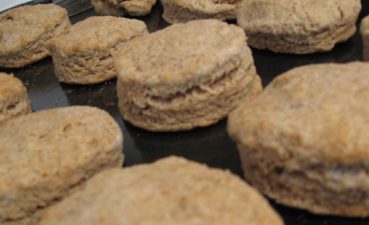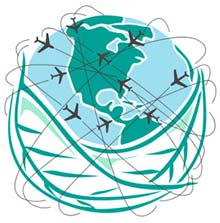 According to the Worldwatch Institute’s latest report on land grab, the oil-rich Gulf nations are big buyers of foreign land
According to the Worldwatch Institute’s latest report on land grab, the oil-rich Gulf nations are big buyers of foreign land
Since 2000, an estimated 70.2 million hectares of agricultural land worldwide has been sold or leased by private or public investors. Most of that land grab took place between 2008 and 2010 and most of the land bought was in Africa, Asia and Latin America. The buyers, however, were a little more dispersed with Brazil, India, China, East Asian nations, the US and the UK topping the list.
The oil-rich Gulf nations of the Middle East, however, were close behind making up one of the major groups of buyers. Indeed Saudi Arabia, the UAE and Qatar alone bought up 4.6 million hectares of land over the decade. And other nations such as Egypt and Jordan have also been buying up fertile land abroad.
According to the latest report by the Worldwatch Institute, the “oil-rich but arid Gulf states made up the final group of major land investors.” Although they are not buying very much compared to the emerging economies (and their growing populations) of Brazil, India and China who together make up 25% of all land purchases, they are still significant buyers for their size. There is also a strong pattern of South-South purchasing or regionalised buying. For example, in the Middle East countries such as Saudi and the UAE have been buying land in Sudan but also more locally in Algeria and Morocco.
Worldwatch author Cameron Scherer said, “most of the data paint one of two pictures: First, there is a new ‘South-South’ regionalism, in which emerging economies invest in nearby, culturally affiliated countries. The other trend is one of wealthy (or increasingly wealthy) countries, many with little arable land, buying up land in low-income nations—-especially those that have been particularly vulnerable to the financial and food crises of recent years.”
Land grab can be defined as the large-scale purchase of agricultural land by foreign investors. The latest report by the Worldwatch Institute brings together data gathered by a network of 45 civil and research society organization which documented 1,006 land deals covering 70.2 million hectares of land from around the world. The data shows a clear peak of land purchasing in 2009 following the food crisis of 2007-08 which saw a rise in the cost of staple foods.
The food crisis of 2008 was also sparked by the rising cost of fuel and oil prices. This led to countries buying up agricultural land hoping to make the most of the rising costs or to protect themselves by garnering a little food security. Africa, with it’s huge land mass, was the main target. In fact, approximately 56.2 million hectares of the land purchased was in Africa.
Although we tend to think of land grab as closely linked to food and food security, the Worldwatch Institute’s report found that a quarter of land grab was not linked to agricultural projects. Upto 11 percent of investors are in the forestry sector, and 8 percent are from the mining industry, livestock, or tourism sectors.
The implications of land grab whilst unclear do not look promising. In many cases, the deal done between investors and the local government displaces local farmers who often work the land but lack formal land rights or access to legal support. The use of industrial agriculture and other related practices can also have negative implication on the land’s quality and the environment surrounding it.
As the Worldwatch Institute state: “In the absence of clear regulations, robust enforcement mechanisms, government transparency, and channels for civil society participation, further investments in land may benefit a group of increasingly wealthy investors at the expense of those living in the targeted land areas.”
: Image of African farmer via Shutterstock.com
For more on land grabs by the Middle East see:
Global Land Grabs: Benefits, Emerging Dangers and Growing Anxieties
Jordanian Bank Sanabel Buys One Quarter of A Congo Forest
Africa Up For Sale: Is the Middle East Buying?



Dear sir or madam well I am very glad to write to you well I am here looking for china investors I have pilots of farm lands for sale to china investors here in the west Africa Gambia for real estate And and business project please help me to have customers sir well I do leav in Sweden with my wife so there for I am kindly looking for investors to sale them to investors I my self wanted to re build like real estate and re sale it again to make profits out of it but I ca not afford it because I am not working and I don’t have money to start business my country Gambia is one of the best business center if you know good kind people with clean hearted and ready to work hard please sir accept my massage and help me let me sale this pilots of lands but if you want to see the pictures of the farm lands also I will send them to you if you ask for them thank you very much my best regards to you